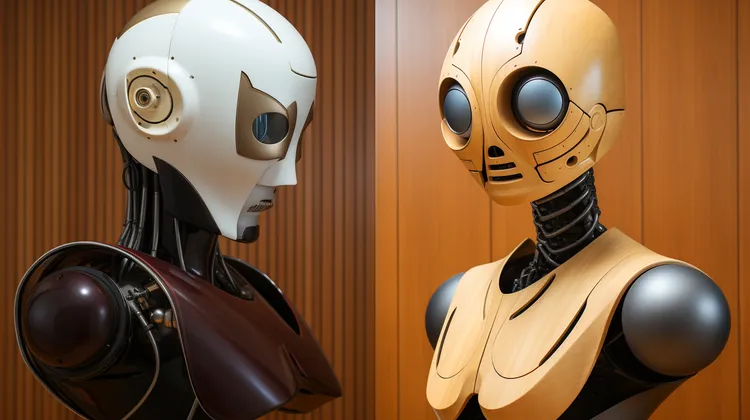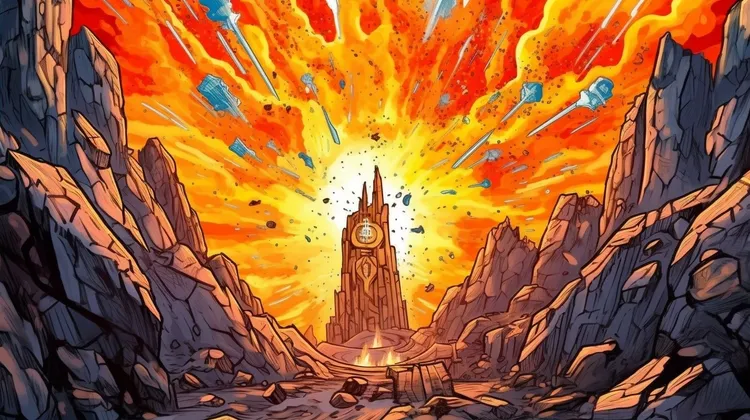In a groundbreaking decision, a U.S. judge recently ruled in favor of human ingenuity by denying copyright for artwork created by artificial intelligence (AI). This ruling has opened up a significant discussion on the intersection of creativity, AI, and intellectual property rights.
The case involved a group of artists who argued that their AI-generated artwork deserved copyright protection, same as any other form of artistic expression. They claimed that the algorithms they developed were no different from traditional tools used by artists, such as paintbrushes or musical instruments. The judge disagreed, highlighting the essential difference between human creativity and AI-generated art.
The judge’s ruling reflects an important consideration: copyright protection is granted to human creations because they involve originality, intentionality, and a unique perspective. Humans bring their emotions, experiences, and cultural backgrounds into their creative endeavors, resulting in truly distinct and personal expressions. On the other hand, AI-generated art lacks this human element and is solely the product of programmed algorithms.
While AI-generated art is undoubtedly fascinating and impressive, it is essential to differentiate between the creator and the tool. AI is a tool for artists, much like a paintbrush or a musical instrument. The algorithms assist in the generation of patterns or combinations of existing artistic styles, but they lack the ability to experience emotions or have personal intentions. They merely process vast amounts of data and organize it in an aesthetically appealing manner.
Allowing copyright to be granted to AI-generated art would have challenging implications for the entire field of intellectual property rights. It could lead to a flood of copyright claims for every piece of artwork produced by AI systems, creating a legal quagmire. It could undermine the incentive for human creators to continue their artistic pursuits if their work can be easily replicated or surpassed by an algorithm.
Some argue that AI can be seen as a co-creator, as the artists have developed and trained the algorithms. This perspective fails to acknowledge the core aspects of human creativity and originality. AI is a tool designed to assist human artists, not an independent creative force. Granting copyright to AI-generated art would blur the line between human and artificial creativity, potentially negating the significance of human ingenuity altogether.
This legal decision does raise questions about attributing authorship and ethical considerations surrounding AI-generated art. As AI systems become more sophisticated, there may be cases where they generate artistic output that is novel, inspired, and unique. In these instances, should the AI system be credited for its contribution to the creative process? Or should the credit solely be given to the human artist who developed and programmed the AI tool?
The debate surrounding copyright for AI-generated art goes beyond legalities and delves into the broader implications of AI’s role in society. It highlights the need for careful consideration of how we define authorship, creativity, and innovation in a world where AI plays an ever-increasing role.
This ruling in favor of human ingenuity and denying copyright for AI art serves as a reminder of the distinctiveness of human creativity. It reaffirms that copyright protection should be reserved for the products of human imagination, intentionality, and a unique perspective. As AI continues to advance, society must adapt its laws and ethical frameworks to strike the right balance between recognizing technological contributions and maintaining the value we place on human innovation and creativity.




This judge clearly doesn’t understand the potential of AI art. 🤦♀️
Kudos to the judge for highlighting the distinction between AI-generated art and human creativity. It’s crucial to preserve the integrity of human expression!
The judge reminded us that creativity and originality come from within us humans, making our art truly remarkable. Well done!
It’s great to see the court acknowledging the significance of human creativity and originality. A step in the right direction!
This ruling is a slap in the face to all the hard work put into AI-generated art! 😡
The judge’s ruling is a triumph for human artists and their unique perspectives. Creativity deserves protection!
Human creativity deserves copyright protection! I’m glad this ruling upholds that principle. A big win for artists everywhere!
Human ingenuity triumphs! It’s not just about the tool, but the depth and emotions that humans infuse into their creations.
It’s refreshing to see the court highlighting the incredible depth that humans bring to their art. Great decision! 👏
Kudos to the judge for distinguishing between AI-generated art and genuine human creativity. Our imagination and emotions are incomparable! 🌟